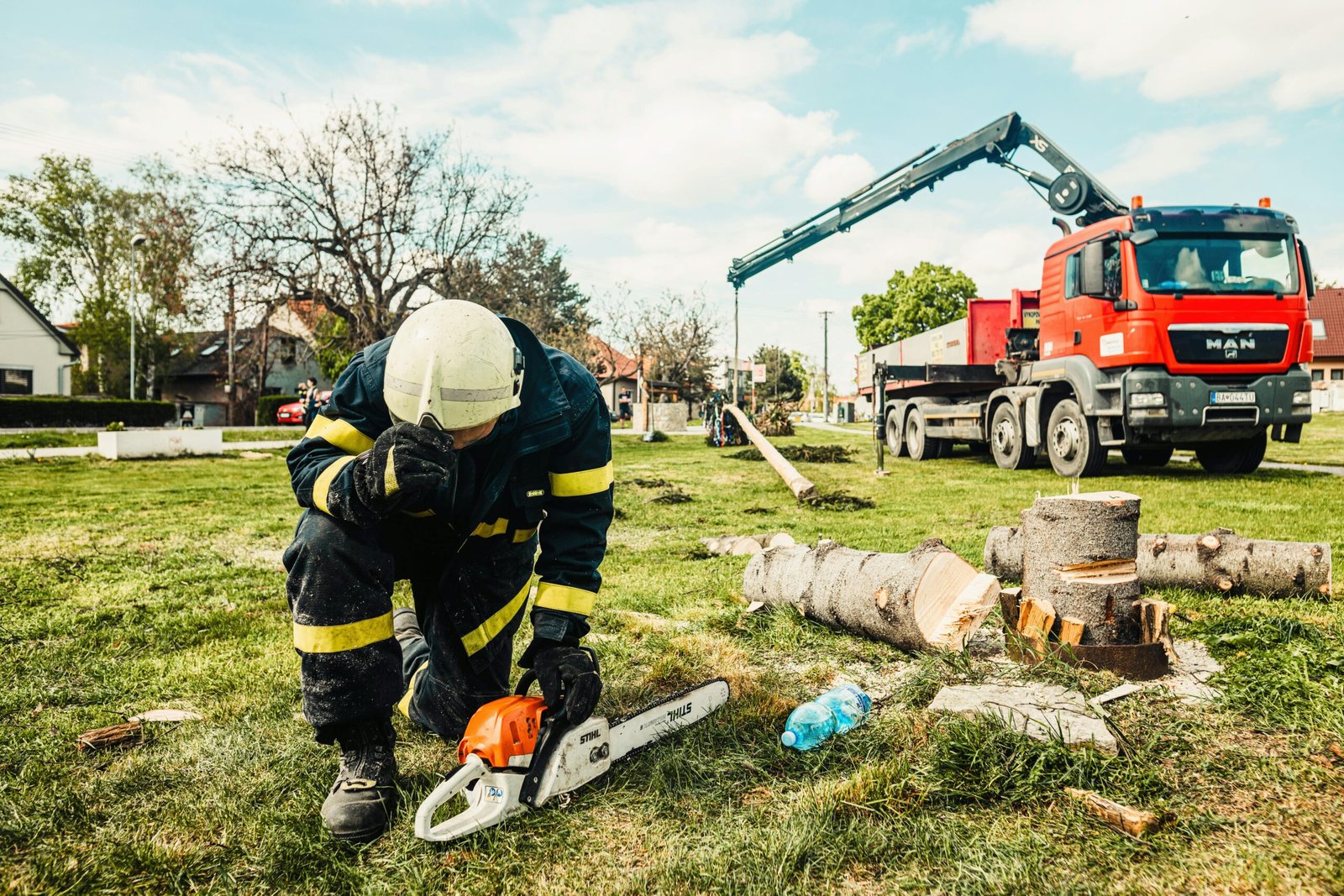Looking for a fulfilling career in transportation security? Look no further than Transportation Security Officer jobs with the Transportation Security Administration (TSA). As a Transportation Security Officer, you will play a vital role in providing security and protection to travelers across all transportation sectors. With opportunities for both full-time and part-time positions, and locations ranging from Springfield, VA to San Francisco, CA, there are numerous opportunities for you to join the TSA and make a difference in ensuring safe travel for all. With competitive salaries starting at $37,696 and the chance to advance within the organization, this could be the career you’ve been searching for. Don’t wait, upload your resume today and let employers find you!

Overview of Transportation Security Officer Jobs
If you’re interested in a rewarding and important career in security, becoming a Transportation Security Officer could be the perfect path for you. In this comprehensive article, we will delve into the responsibilities, salary and benefits, job outlook, training and education requirements, as well as the skills and qualifications needed to excel in this role. Additionally, we will provide insights on how to apply for transportation security officer jobs, top employers in the industry, and the challenges and rewards that come with this profession. By the end of this article, you will have a thorough understanding of what it takes to embark on a career as a Transportation Security Officer.
Responsibilities of Transportation Security Officers
As a Transportation Security Officer, your primary responsibility is to ensure the safety and security of passengers and their belongings in various transportation sectors. This includes screening and inspecting passengers, checking baggage and belongings, monitoring security access points, enforcing security regulations, and maintaining equipment. You will play a crucial role in preventing potential security threats and maintaining the integrity of the transportation system.
Screening and Inspecting Passengers
One of the key responsibilities of a Transportation Security Officer is conducting thorough screenings of passengers to identify any prohibited items or potential threats. This involves using advanced screening technologies such as x-ray machines, walk-through metal detectors, and explosive detection systems. You will need to effectively communicate with passengers, explain the screening process, and ensure their cooperation and compliance.
Checking Baggage and Belongings
Transportation Security Officers are responsible for inspecting and x-raying baggage and personal belongings to identify any prohibited items or security threats. This requires a keen eye for detail and the ability to interpret x-ray images effectively. If any suspicious items are detected, you will need to follow established protocols for further investigation or removal of the item.
Monitoring Security Access Points
In order to maintain the security of transportation facilities, Transportation Security Officers are stationed at security access points such as entrances, gates, and checkpoints. You will be responsible for monitoring these areas to ensure only authorized personnel are granted access. This includes verifying identification, checking security clearances, and enforcing access control policies.
Enforcing Security Regulations
Transportation Security Officers play a vital role in enforcing security regulations set by various agencies and organizations. This involves educating passengers on security procedures, ensuring compliance with rules regarding prohibited items, and addressing any violations or non-compliance. Maintaining a high level of professionalism and excellent communication skills are crucial in effectively enforcing security regulations.
Maintaining Equipment and Reporting Incidents
To ensure the effectiveness of security screening processes, Transportation Security Officers are responsible for regularly maintaining and calibrating screening equipment. This includes conducting routine inspections, troubleshooting any issues, and promptly reporting any malfunctions or incidents. Attention to detail and a proactive approach are essential to maintaining the integrity and functionality of security equipment.

Salary and Benefits
The average salary of Transportation Security Officers varies depending on factors such as location, experience, and level of responsibility. According to data from Indeed.com, transportation security officers earn an average annual salary ranging from $37,696 to $61,429 in the United States. However, it’s important to note that these figures are subject to change and may vary based on specific job postings and individual qualifications.
In addition to competitive salaries, Transportation Security Officers often enjoy a range of benefits. These can include health insurance, retirement plans, paid time off, and access to training and professional development opportunities. Some agencies may also offer additional benefits such as shift differentials, which provide additional compensation for working nights, weekends, or holidays, as well as overtime opportunities.
Job Outlook and Growth Opportunities
The demand for Transportation Security Officers is expected to remain steady in the coming years. As the need for increased security measures in transportation systems continues to grow, so does the demand for qualified professionals in this field. This creates opportunities for individuals seeking stable and fulfilling careers in the security industry.
In terms of career advancement, Transportation Security Officers have various opportunities to grow and progress within their profession. Advancement can come in the form of promotions to supervisory or managerial roles, where you can oversee the work of other officers and contribute to policy development. Additionally, there are opportunities for specialization in areas such as canine handling, explosives detection, or intelligence analysis. With the right combination of experience, education, and skills, you can pave the way for a successful and rewarding career as a Transportation Security Officer.

Training and Education Requirements
Becoming a Transportation Security Officer typically requires completing basic training programs and meeting certain education requirements. The specific training and education requirements can vary depending on the agency or organization you are applying to. However, there are some common requirements across the industry.
Basic Training for Transportation Security Officers
Basic training for Transportation Security Officers usually consists of a comprehensive program that covers various aspects of security screening, regulations, and procedures. This training ensures that officers are equipped with the necessary knowledge and skills to carry out their duties effectively and efficiently. During this training, you will learn about threat assessment, passenger screening techniques, use of screening equipment, and emergency response procedures.
Continuing Education and Certification
To stay up-to-date with evolving security measures and technologies, Transportation Security Officers are often required to undergo continuing education and training. This can include attending seminars, workshops, and refresher courses to stay informed about the latest security protocols and techniques. Earning relevant certifications, such as the Certified Transportation Security Officer (CTSO) designation, can also demonstrate your commitment to professional development and enhance your career prospects.
Physical Fitness Requirements
Given the physically demanding nature of the job, transportation security officers are typically required to meet specific physical fitness requirements. This can involve passing a physical fitness test that assesses your strength, agility, and endurance. Maintaining physical fitness is crucial for performing duties such as lifting heavy items, standing for long periods, and responding quickly to potential security threats.
Background Checks and Security Clearance
Due to the sensitive nature of their work, Transportation Security Officers undergo thorough background checks and security clearance processes. This includes criminal background checks, employment history verification, and fingerprinting. The purpose of these checks is to ensure that individuals with a history of criminal activity or potential risks are not granted access to secured areas or entrusted with the responsibility of public safety.
Skills and Qualifications
To excel as a Transportation Security Officer, there are several essential skills and qualifications that you should possess. These skills and qualifications not only contribute to your effectiveness in the role but also enhance your career prospects within the security industry.
Strong Communication and Interpersonal Skills
As a Transportation Security Officer, you will have to interact with a diverse range of individuals, including passengers, coworkers, and law enforcement personnel. Strong communication and interpersonal skills are vital for effectively conveying information, diffusing tense situations, and maintaining a professional demeanor. Being able to communicate clearly, listen actively, and adapt your communication style to different individuals and circumstances is essential.
Attention to Detail and Observational Skills
Transportation Security Officers must have a keen eye for detail and strong observational skills. This involves being able to identify potential threats or prohibited items during screenings and inspections. The ability to assess situations quickly, analyze information accurately, and make sound decisions based on observations is crucial to ensuring the safety and security of passengers and transportation facilities.
Ability to Remain Calm Under Pressure
Working as a Transportation Security Officer often involves handling stressful and high-pressure situations. Whether it’s dealing with difficult passengers, responding to security incidents, or addressing emergencies, the ability to remain calm and composed is essential. The capacity to think rationally, make quick decisions, and follow established protocols and procedures can make a significant difference in effectively managing challenging situations.
Physical Fitness and Stamina
Being a Transportation Security Officer requires physical fitness and stamina, as you will be on your feet for long periods and may need to lift heavy items. Maintaining a level of physical fitness that enables you to perform these tasks safely and efficiently is essential. Regular exercise, including cardiovascular and strength training, can help you stay in shape and meet the physical demands of the job.
Knowledge of Security Procedures and Regulations
A strong understanding of security procedures and regulations is crucial for Transportation Security Officers. This includes knowledge of the Transportation Security Administration (TSA) guidelines, local laws and regulations, and industry best practices. Staying informed about emerging security threats, new screening technologies, and changes in security protocols is essential for maintaining the highest level of security and protecting the traveling public.
How to Apply for Transportation Security Officer Jobs
If you’re interested in pursuing a career as a Transportation Security Officer, here are the steps you can take to apply for available positions:
Search for Job Openings
Begin by searching for job openings in your preferred location. Utilize resources such as job boards, government websites, and agency-specific portals to find current postings for Transportation Security Officer positions. Take note of the required qualifications and application deadlines for each job listing.
Submit an Application and Resume
Once you find a job opening that aligns with your qualifications and interests, review the application requirements and submit the necessary documents. This typically includes completing an online application form and uploading your resume. Pay close attention to the submission instructions to ensure that your application is considered.
Prepare for an Interview
If your application is successful, you may be invited for an interview. Prepare for the interview by researching the specific agency or organization you are applying to, familiarizing yourself with their mission and values, and understanding the role of a Transportation Security Officer within that context. Practice answering common interview questions and consider how you can demonstrate your skills, qualifications, and fit for the position.
Pass Background Checks and Security Clearances
As mentioned earlier, Transportation Security Officers undergo thorough background checks and security clearance processes. Be prepared to provide accurate and detailed information about your personal history, references, and previous employment. It’s important to be upfront and transparent during this process to maintain the integrity of the screening process.
Complete Training and Onboarding Process
Once you have successfully passed the application and background check stages, you will be required to complete the training and onboarding process. This will involve attending training programs specific to the agency or organization you are joining. Pay close attention to the training schedule, requirements, and any additional documents or certifications you may need to provide.
Top Employers of Transportation Security Officers
As you embark on your journey as a Transportation Security Officer, it is helpful to be familiar with some of the top employers in the industry. While this list is not exhaustive, it gives you an idea of the potential employers you may encounter when searching for job opportunities.
Transportation Security Administration (TSA)
The Transportation Security Administration (TSA) is a federal agency responsible for ensuring the security of the nation’s transportation systems. They employ a significant number of Transportation Security Officers across various airports and transportation hubs nationwide.
Airport Security Agencies
Many airports have their own security agencies that hire Transportation Security Officers to carry out security screenings and maintain the safety of passengers and the airport environment. These agencies work closely with the TSA to adhere to established security protocols and regulations.
Government Agencies
In addition to the TSA, other government agencies may employ Transportation Security Officers to provide security for their transportation facilities. These agencies can include those responsible for public transportation systems, government buildings, and maritime transportation.
Private Security Firms
Private security firms are another potential employer of Transportation Security Officers. These firms may provide security services for a range of clients and locations, including transportation facilities. Some private security firms specialize in providing security services specifically for the transportation industry.
Challenges and Rewards of Transportation Security Officer Jobs
Like any profession, becoming a Transportation Security Officer comes with its own set of challenges and rewards. Here are some of the key aspects to consider:
Dealing with Difficult Passengers and Security Threats
As a Transportation Security Officer, you may encounter difficult passengers who may become uncooperative or display challenging behavior. It is crucial to remain calm, professional, and focused on maintaining the security of the transportation system. Additionally, there is always a risk of encountering security threats, which require quick thinking, adherence to protocols, and coordination with law enforcement agencies.
Contributing to National Security
One of the most rewarding aspects of being a Transportation Security Officer is the opportunity to contribute to national security efforts. By ensuring the safety and security of transportation systems, you play a vital role in protecting the traveling public and preventing potential security threats. Knowing that your work has a direct impact on the safety of others can be highly fulfilling.
Opportunities for Career Growth and Advancement
The field of transportation security offers various avenues for career growth and advancement. With experience, additional training, and the right qualifications, you can advance to more senior roles within your organization or explore specialization in areas such as canine handling, explosives detection, or security management. The opportunity to progress in your career and take on greater responsibility can be both personally and professionally rewarding.
Conclusion
In conclusion, a career as a Transportation Security Officer offers a dynamic, challenging, and important role within the security industry. By taking on responsibilities such as screening and inspecting passengers, checking baggage, and enforcing security regulations, Transportation Security Officers play a critical role in maintaining the safety and security of the traveling public. With competitive salaries, a range of benefits, and opportunities for career growth and advancement, this field offers a promising career prospect for those interested in security and public service. If you possess strong communication skills, attention to detail, the ability to remain calm under pressure, and a commitment to national security, a career as a Transportation Security Officer may be the perfect fit for you.












